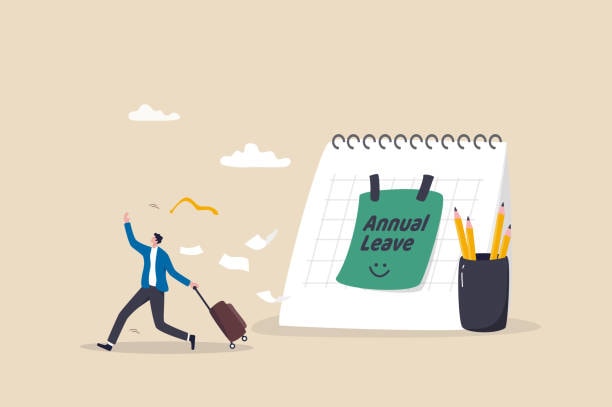Many Gen Z employees do not hesitate to take long-term leave even though they have just started working because they prioritize health and work-life balance.

Gen Z is considered to prioritize physical and mental health more than previous generations. Not only are they willing to take sick leave when necessary, this group of workers also proactively seek out long breaks early in their careers.
Data from HR platform Dayforce shows that sick days at some US companies increased by 55% in 2023 compared to 2019.
Gusto, another HR platform, found similar results when it surveyed more than 300,000 small and medium-sized businesses. The results showed that 30% of office workers took sick leave last year, up from 42% in 2019. The 25-34 age group in particular tended to take more sick leave than their older colleagues.
Younger workers also lead the way in taking long-term vacations. Gusto statistics show that the 22-26 age group has the highest rate of taking long-term vacations, followed by 27-34 year olds.
Liz Willke, an economist at Gusto, said the rise in furlough requests shows that many young people want to establish boundaries between work and life, with reports showing that Gen Z feels more stressed and anxious at work than previous generations.
The Covid-19 pandemic has also had a significant impact on people’s health awareness, especially among young people. Kenneth Matos, director of market research at Hibob, a human resources technology company, said this reflects a trend of young people becoming more health-conscious and avoiding potentially risky activities.
Recent studies show that the number of young employees taking time off due to physical or mental health issues has doubled since 2023. ComPsych's analysis of 5,700 companies also found that the number of days off related to mental health has spiked 300% from 2017 to 2023.
The pandemic has significantly increased anxiety and burnout, causing people, especially younger generations, to prioritize health over work, said Michelle Quist Ryder, CEO of the American Psychological Foundation.
Additionally, this younger cohort is reshaping the relationship between employees and employers. Witnessing a wave of layoffs, this generation is beginning to question the value of dedication.
“The belief that sacrificing for work will be rewarded is waning. When someone says, ‘I’m not going to take sick leave and I’m going to work remotely to get the job done,’ they wonder what they’re getting out of that effort,” Matos said.
In fact, going to the office can increase the ability to interact and learn, but Gen Z is not afraid to take sick days when necessary. Remote workers even use more sick days. This shows the pressure of working from home and a more relaxed working environment.
Brittany Schmaling, a data analyst at Dayforce, says flexible work environments can encourage employees to use their leave more freely.
But not everyone gets this privilege. For example, front-line employees, especially in retail, often don't get paid sick leave - a stark contrast to office workers.
This reality shows that many businesses should learn from Gen Z about valuing employee health, called "presenteeism". This phrase means that when employees are forced to come to work when sick, it not only harms their health, but also affects the productivity and efficiency of the entire organization.
And taking much-needed time off runs counter to some of the toxic aspects of American work culture, where people often choose “quiet vacations” over taking time off because they fear being judged as less dedicated to their jobs. The pressure to be a model employee leads many to sacrifice their health to meet expectations.
Mindy Shoss, a psychology professor at the University of Central Florida (USA), said that American work culture always considers overworking as a sign of dedication. This becomes more serious when employees are afraid of being fired and try to work even when they are sick.
According to experts, it is time for workers and managers to reconsider their working methods and prioritize health.
TH (according to VnExpress)